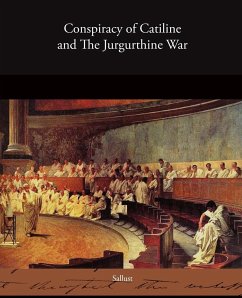Sallust was a Roman historian who throughout his career stood by his principles as a popularis, and an opposer of Pompey's party and the old aristocracy of Rome. In 46 he served as a praetor and accompanied Caesar in his African campaign. He was promoted to governor of the providence of Africa Nova. In this work it is clear that Sallust was troubled by the moral decline in Rome. Sallust argues against Catiline's depraved character and vicious actions. He does state that Catiline had many noble traits. He was all that a Roman man needed to be to succeed. In particular, Sallust shows Catiline as deeply courageous in his final battle. Jugurthine War is a brief monograph recording the war in Numidia c.112 B.C.








